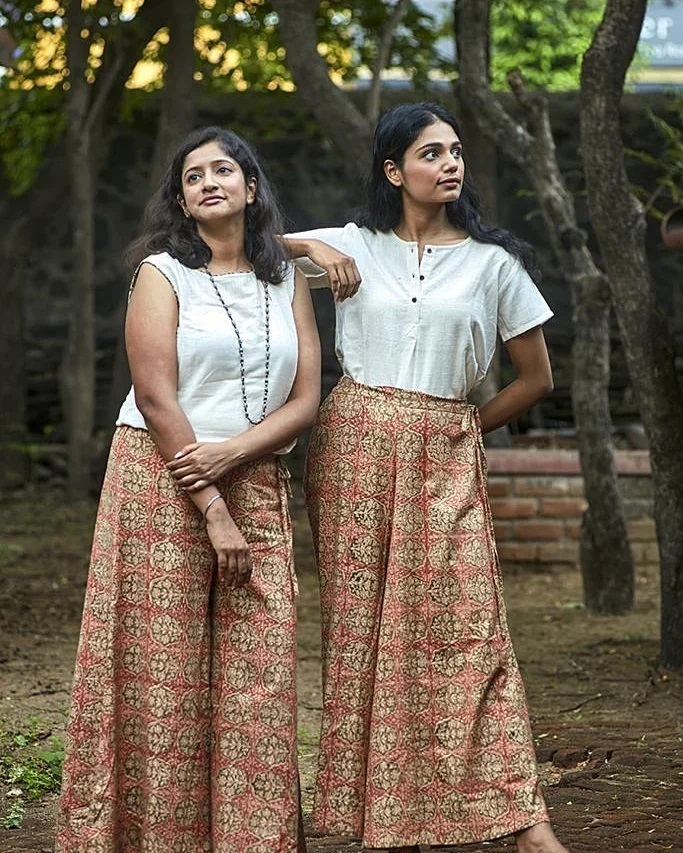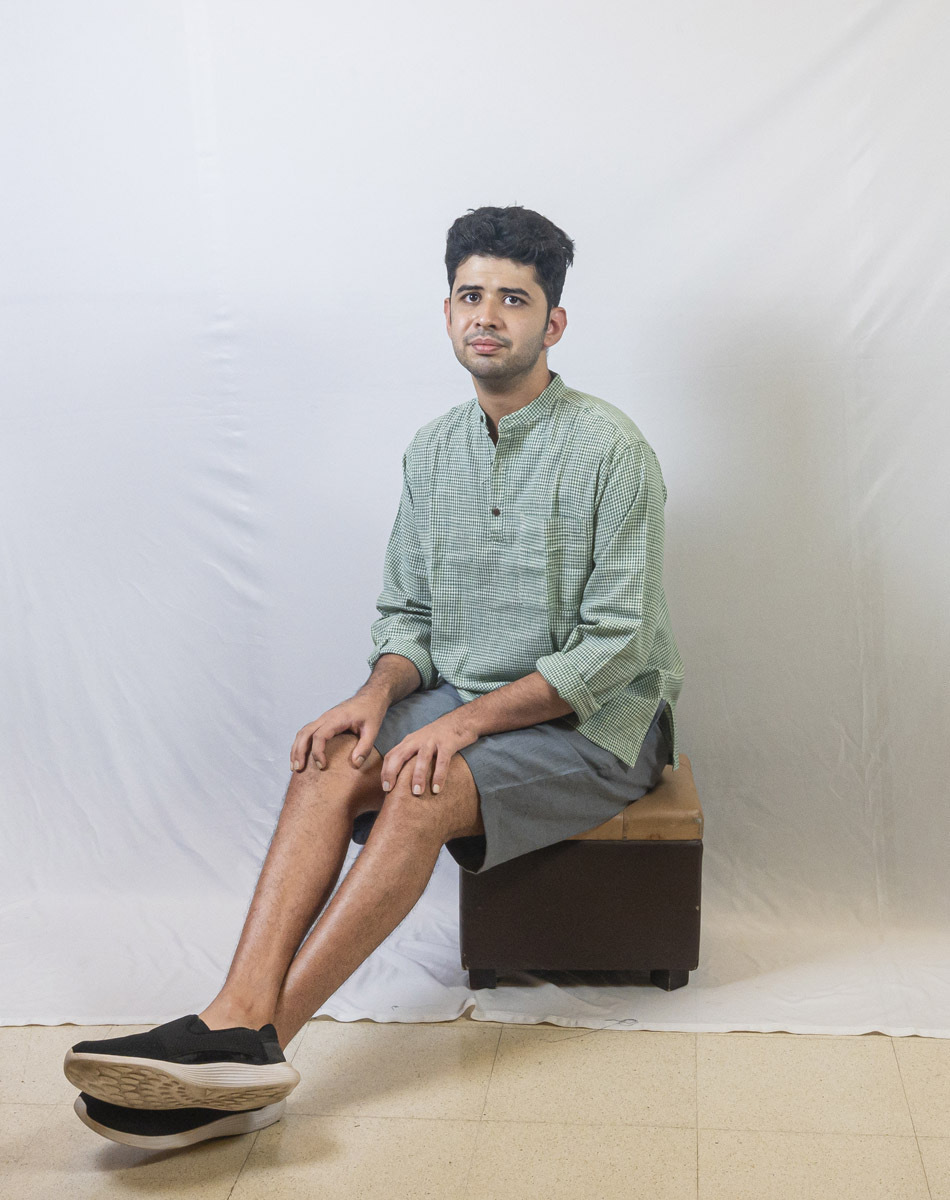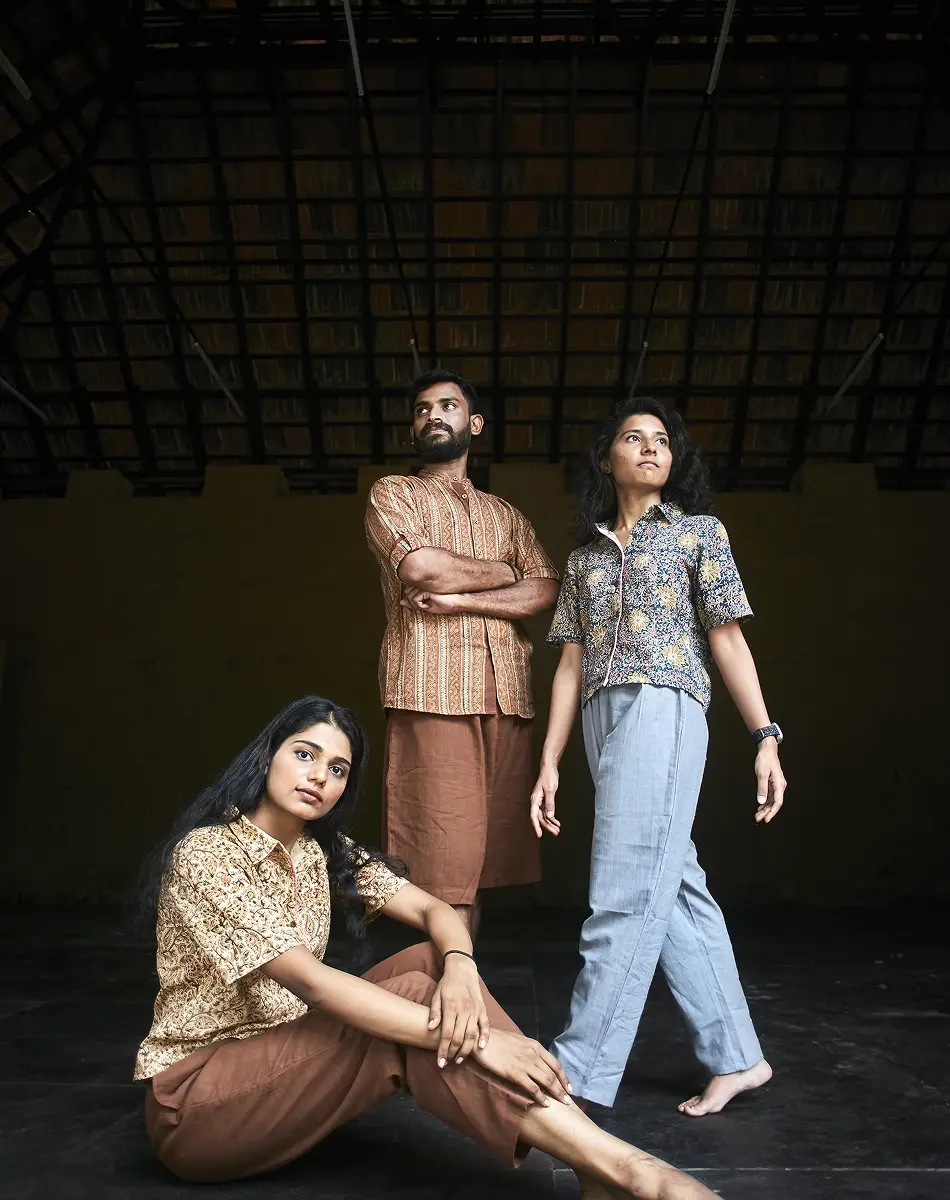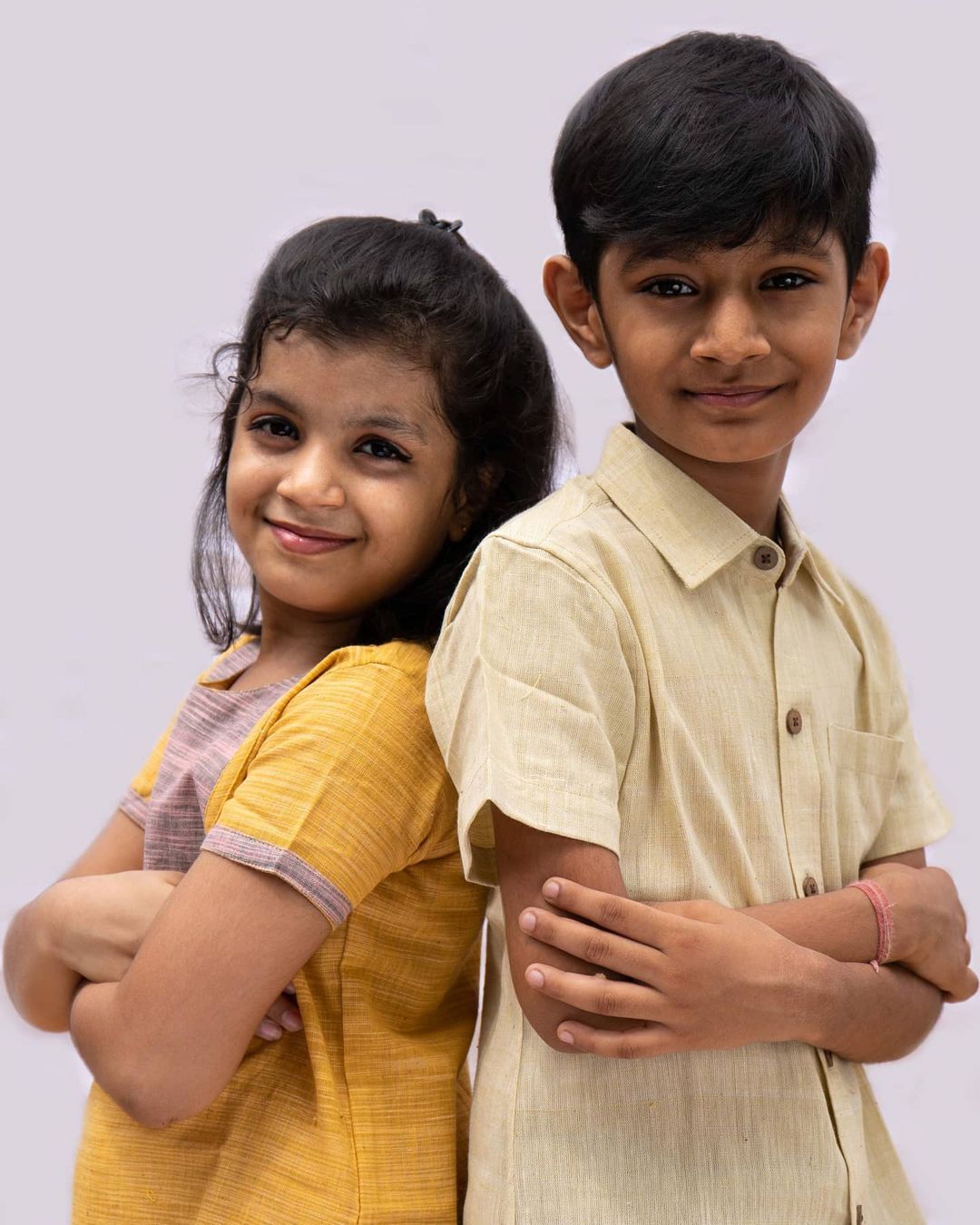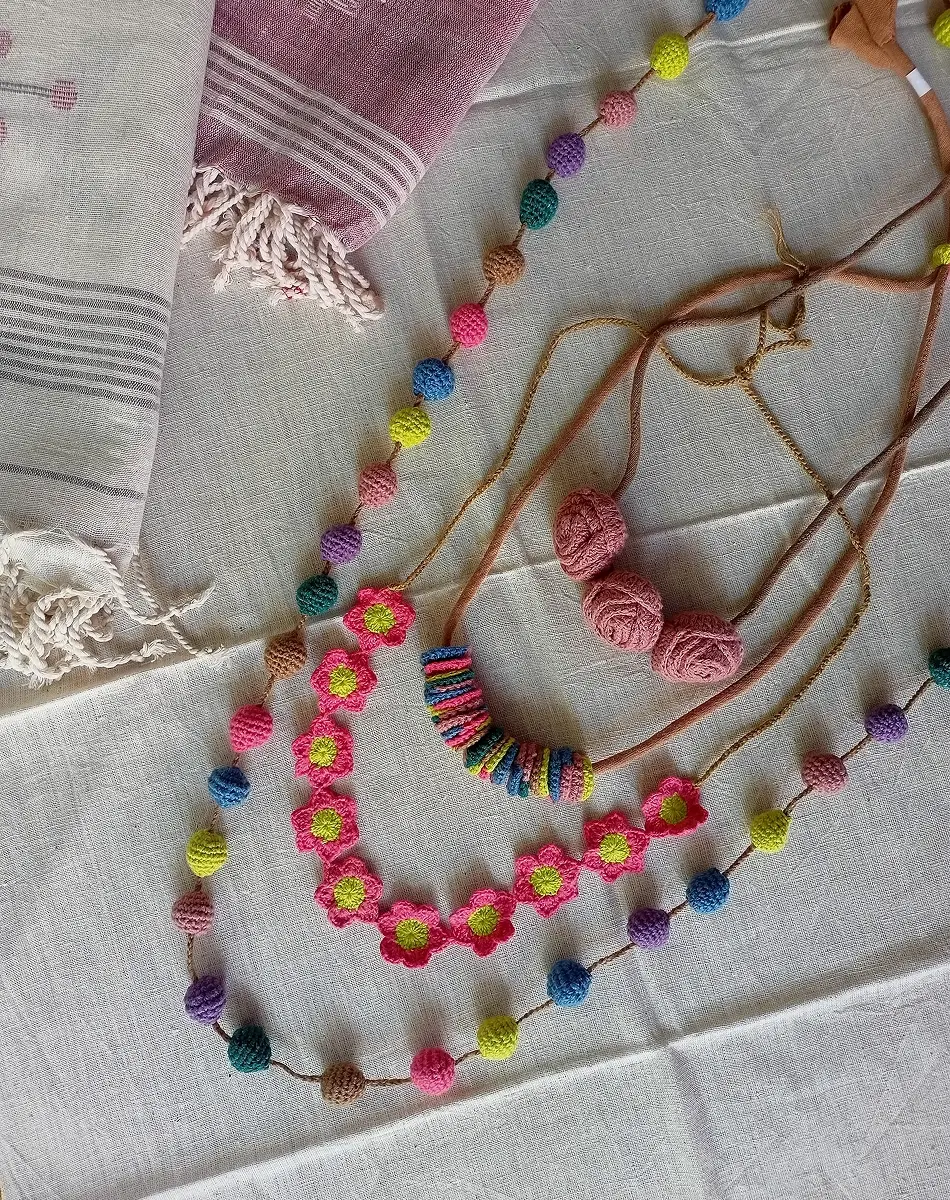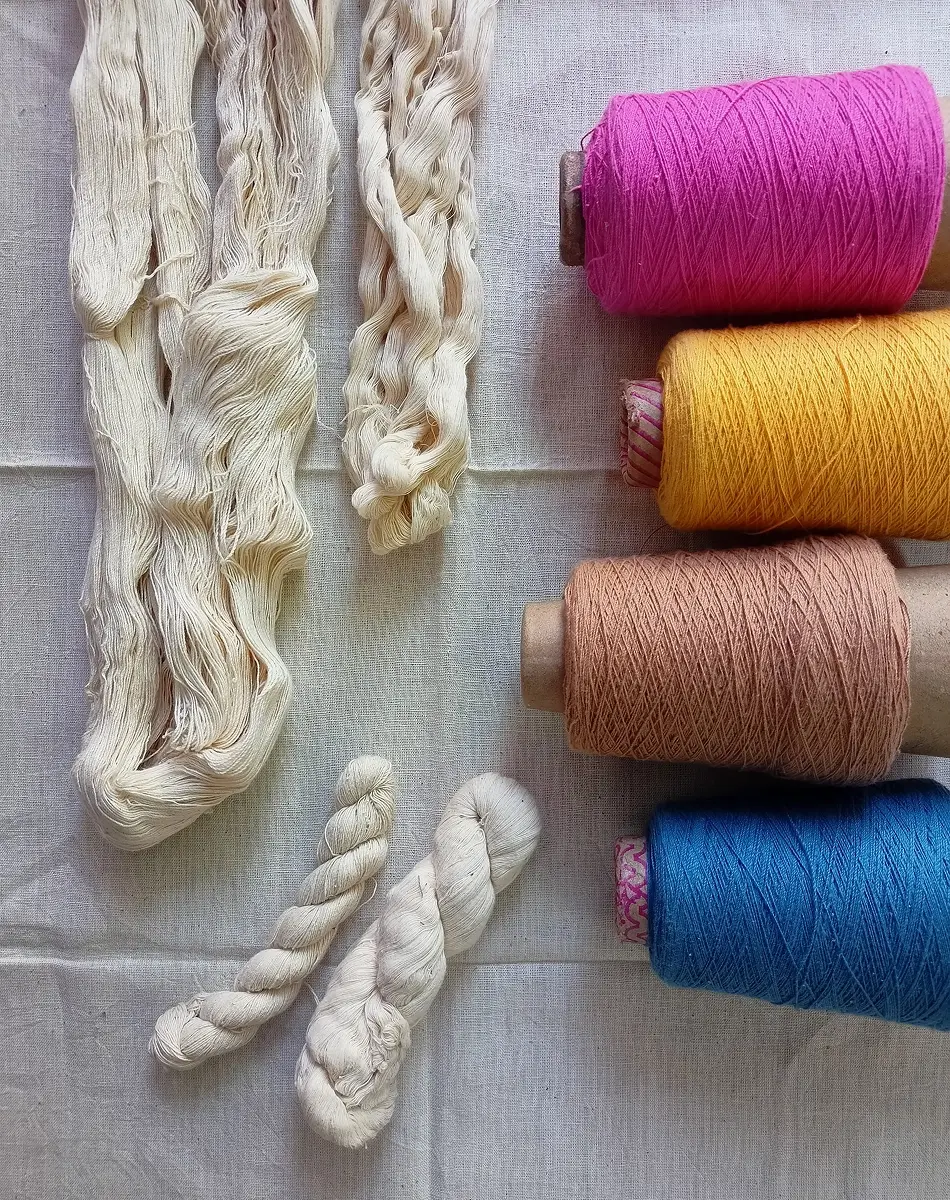Tula India – Organic Desi Cotton, Handspun, Handwoven, Natural Dyed and Manual Tailored Clothing
Menu
- About Us
- Products
-
-
-
-
- WomenChoose from a wide range of colourful Tops/kurtis made using rainfed organic cotton, hand spun, hand woven, naturally dyed and manually tailored.
- MenFrom half sleeves to full sleeve shirts, short kurtas to long kurtas. Make your choice!
- KidsA wide collection of kids wear for boys and girls using the finest and softest cotton.
- BottomsChoose from our range of unisex pajams, Palazzo, Shorts, Towels and more
-
-
- Value Chain
- Ambassadors
- News
- Events
- Catalog
- Gift
- Gallery
- Contact Us
About Us
About Tula
Tula is a not-for-profit social enterprise that brings to you garments from Indian(desi) cottons organically grown by smallholder, rainfed farmers, with the yarn hand spun by skilled khadi / khaddar workers and colored with natural dyes where required with expert guidance, the fabric woven on handlooms by master weavers, the garments stitched by women and men from economically and socially marginalized groups. When you wear a Tula garment, you can be sure that it is the lightest garment possible, both in its environmental sense and its just/fair trade sense and that it has touched more than 6 livelihoods.
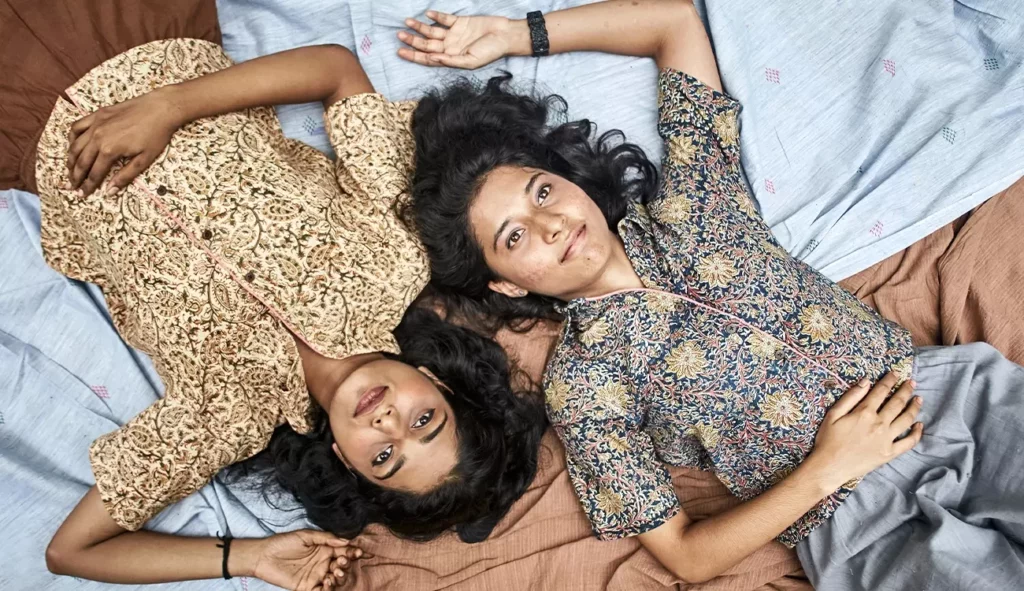
Why Us
01
The major disconnect between the clothes worn by us and the ecology, exploitation of the people working for making the garments, pollution and other long term destruction we cause needs many of us to stand up and call out. We were a bunch of volunteers who worked with food and farmers who moved on to the clothing too as we watched the value chain closely. It was messed up all-round. The true cost of clothing on our environment, ecology, economy was too much and needed path correction. The fact that 3/4th of what we wear is fossil fuel (plastic) based and the fact that the colours that we think are ‘attractive’, ‘bright’ & ‘beautiful’ are so harsh on our environment, resources like water bodies and next generation, we need a huge wake up call. The correction that was required was in the production (from seed to agro practices) to wearing (not one time or short lived and not the synthetic polluting non-biodegradable) to disposing responsibly. Can it also be decentralized operation, distributed economy, just and fair compensation, eco friendly & ethical? We tried to take all these values all through the value chain. Come travel with us and ensure all round sustainability.
Sustainable Practices
02
More than 70,000 synthetic chemicals are in use in textiles and hardly 2% have been tested to be safe. With the onslaught of Genetically Modified BT cotton, the impact is so harsh that if the corrective action of sustainable practices in production, all along the value chain and in disposal, is not taken immediately we may end up in irreversible and irretrievable situation.Regenerative cotton grown in rainfed conditions (means water is not sucked up from underground) organically from traditional Desi seeds is hand spun, hand woven, dyed from natural plant materials and manually tailored! That's not all, even the buttons are made from coconut shells or other biodegradable sources and the embellishments are also mindfully sustainable.
End of Life is an important aspect of clothing too and here at Tula, what originated from soil will end up becoming soil!
Bettering Livehood
03
One sixth of the world population is engaged in textiles but most of it is reeling under severe exploitative and undignified, almost unlivable remuneration. It is important not only to be adhering to sustainable practices in the production cycle but ensure economically too its sustainable and fair. The livelihoods involved be it farming, spinning, weaving, dyeing, tailoring and other value adding ones should be fairly and rightly compensated. Tula ensures all these livelihoods are paid fairly and all livelihoods involved are bettered.
Profit Sharing
04
Tula is a not-for-profit organization and works to better the artisans’ livelihoods. But from whatever little margin is set aside to take care of salaries, transport, rent and other expenses, if there is an accrual at the year end, it is shared with the primary producers as incentive.
It is important to note the way the amount the customer gives is shared amongst all the players.
You cannot get to see a more distributed economy as envisaged by the Great Gandhiji and J C Kumarappa.
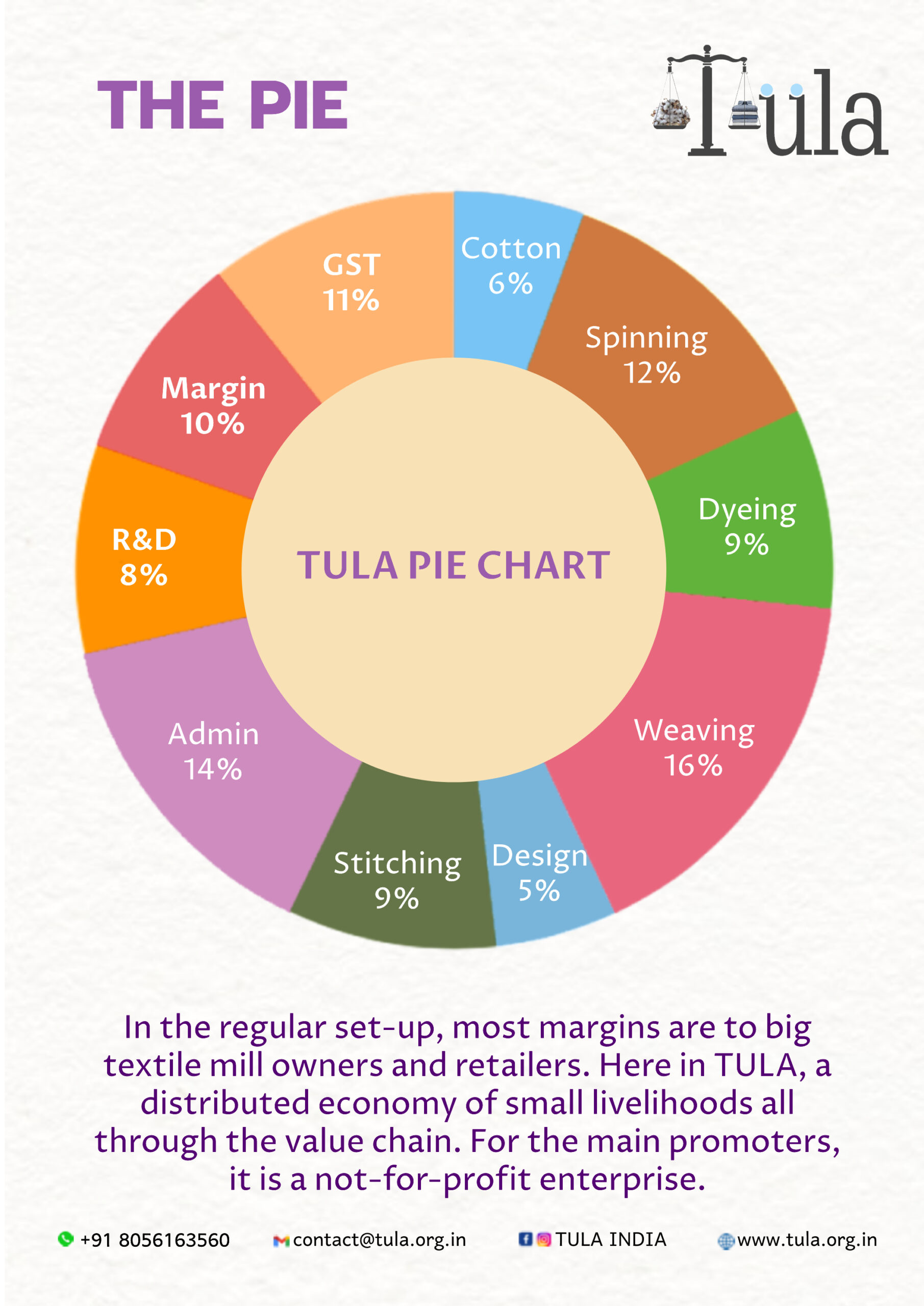
Origin of Tula
05
We were a bunch of friends who jumped off the corporate tread mill and began working with farmers and helped them go organic. We started a not-for-profit organic retail outlet 11 years back called Restore, (restore.org.in). Subsequently, we floated the OFM (Organic Farmers Market http://www.ofmtn.in/) to take the organic produce to the middle class, thus running a series of collective stores as a distributor-retailer cooperative model.
Tula's roots emerged out of a revival of organic farming of indigenous foods. It all began in 2007 in Chennai, during a brainstorming session amongst friends, who wanted to address the agriculture and farmer crisis ravaging India through an environmentally and economically sustainable way.
By 2010, the 10 years of Bt cotton showed a very sad state of affairs for the environment and human health, farmers plight, seed sovereignty and added to this was the industry’s known exploitative techniques. In a meeting organised to discuss the ills of Bt cotton and 10 years of it in India, one of the most belligerent and well known farmer Vivek Cariappa shamed us all questioning- if all (y)our inner garments are also made from Bt cotton what are we doing here analysing it still?
That hit us as much as the question of a benign bystander in one of our chennai organic/safe food meetings – if 70% of the farm suicides are in the cotton belts what are you guys doing working only with safe food and organic farmers? These led us to look deeper on the cotton value chain and plunge in!
The picture of cotton was a sorry state of affairs. We were concerned with issues such as the condition of the farmer, use of chemical fertilisers and pesticides, costs of production, pathetic remuneration to the workers, returns on investment, genetically modified crop varieties and availability of seeds. These issues became the basis for Tula to focus on reviving rain-fed desi cotton value chain.
Organic clothing has become the need of the hour as much as understanding its ethical value chain, revival of khadi and promoting local livelihoods. Desi cotton was always accompanied by manual spinning and hand weaving of the most skilled and aesthetic kind making India world famous for its textiles. Even the world famous Dhaka muslin was woven with desi cotton in those days of yore.
So, a set of friends invested, through the crowdfunding model, and took up cotton growing to upgrade the value chain in an ethical and eco-friendly manner. Tula was set up to conduct the whole process, as a not-for-profit, ensuring all livelihoods in the value chain improved and bettered. And we are still spinning and weaving it as eco friendly and ethical as you can get, the worlds lightest garment you can ever sport!
Why is it important to me as a customer?
06
While one aspect of this is the eco sensitiveness and uplifting the marginal farmers, here are some hard facts for your consideration- 284694* Number of farmer suicides , more than 50% of it pertains to cotton!
(* In India, Nearly 4,00,000 farmers committed suicide in India between 1995 and 2018 as per NCRB data)
• Only 5% of cultivable land is under cotton in India, but 55% of pesticide use is pertaining to cotton.
• 2700 liters of clean, safe water to make one shirt of inorganic cotton! Water that would otherwise be used for basic needs and drinking for millions.
• The Desi organic cotton, that was well prevalent a few decades ago contributes to less than 5% of cotton cultivated, rest 95% is BT cotton with GMO crops.
• More cultivation of desi, organic cotton will result in dramatic improvement of the livelihoods of farmers, spinners, weavers, tailors etc..
• Desi cotton has traditionally been a multi crop, which means less water intensive using only about 2% water compared to inorganic.
• Desi cotton is drought and pest resistant in nature and a climate crisis combatant.
| Stakeholder | Productivity | Income |
|---|---|---|
| Desi-Cotton Farmers | 500 Kgs Yield per hectare | Rs. 50,000 per crop cycle in 1 hectare |
| Hand Spinners | 1 Kg Yarn per day | Rs. 610 per day |
| Handloom Weavers | 6 Mts Cloth per day | Rs. 660 per day |
| Tailors | 6 Shirts per day | Rs. 660 per day |

